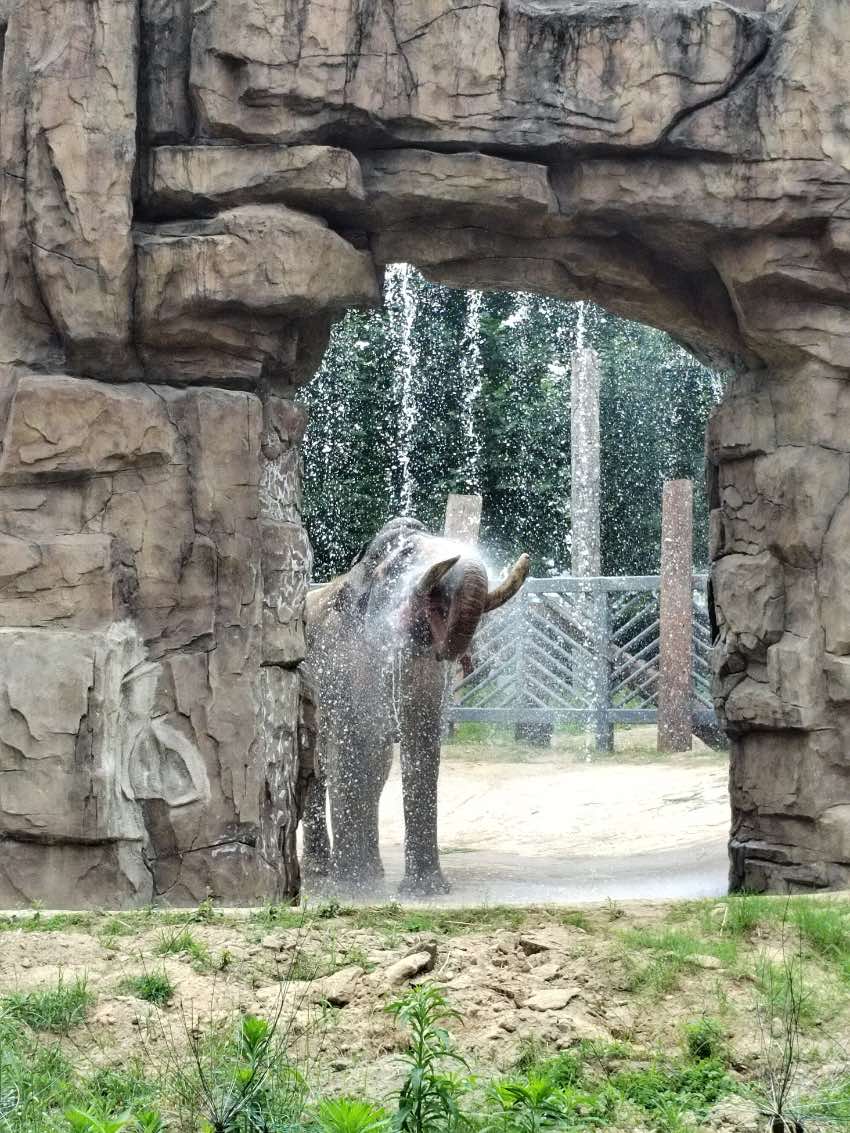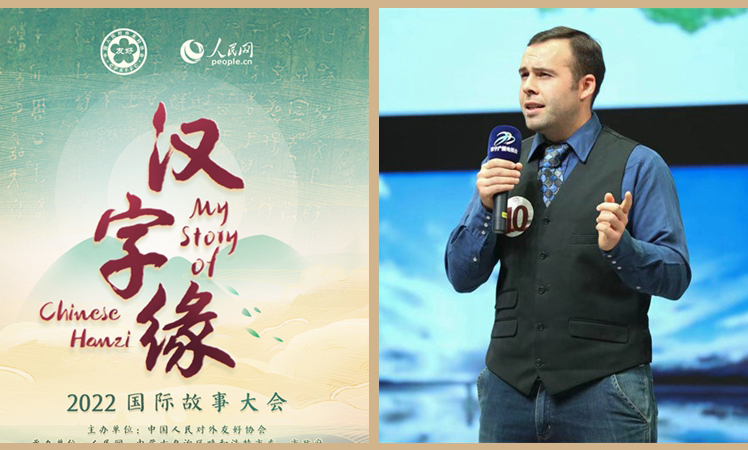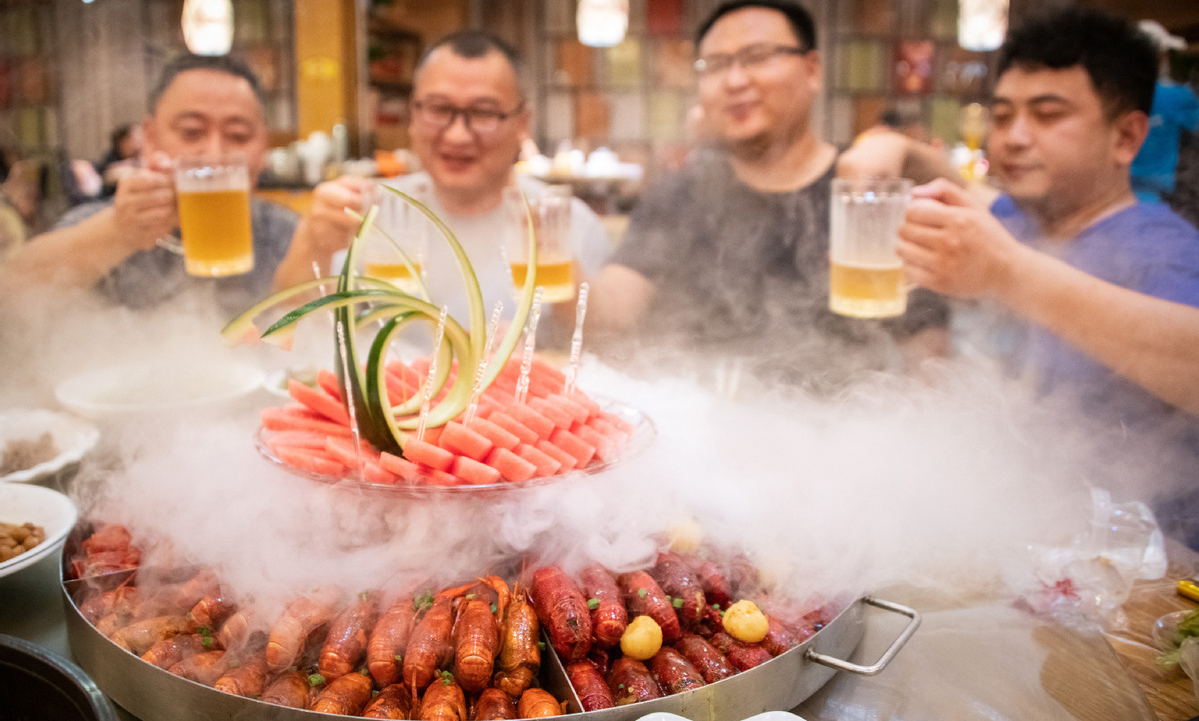Chengdu Zoo in SW China’s Sichuan helps animals beat summer heat with medley of frozen treats (2)
 |
| An elephant plays with water to cool off on a hot day inside the Chengdu Zoo in Chengdu, capital of southwest China’s Sichuan Province. (Photo/Courtesy of Chengdu Zoo) |
Chengdu Zoo in Chengdu, capital of southwest China’s Sichuan Province, has adopted a multitude of innovative measures to help cool down animals in the dog days of summer.
Ice blocks, the most common method adopted for cooling at zoos, have been widely used inside more than 20 animal houses and enclosures at the Chengdu Zoo. About 110 ice blocks are delivered to the zoo every day, with each weighing between 40 to 45 kilograms.
The zoo also prepares various kinds of “cakes” made of ice combined with fruits, vegetables, or meat for their animal guests. The herbivores get special “cakes” mixed with food items like apples, peanuts, and vegetables, while the carnivores are provided with ice “cakes” containing cow’s blood, the bones of cows and chickens, and other varieties of food they prefer. These “cakes” featuring different flavors not only help the animals to get some much needed relief from the summer heat, but provide extra enrichment to their everyday feeding experience.
A collection of cooling and shading devices, such as spray facilities, pools, sunshade nettings, air conditioners and electric fans, have been used to improve air circulation and lower the temperature of animals’ living environments.
Certain foods and drugs that can help alleviate the summer heat have also been used to prevent any zoo animals from experiencing sunstroke. Nutritionists have adjusted the proportion of different foods in the summer feed of the animals, increasing the proportion of seasonal fruits like watermelon to help them beat the heat. Between May and the end of October every year, the animals at the zoo will consume about an average of 85 kilograms of watermelon a day. Zookeepers will feed hippos, bears, primates, and many other animals iced watermelons regularly. They also mix heatstroke prevention drugs with water under the guidance of veterinarians, providing them to the zoo’s animals on hot days.
 |  |
Photos
Copyright © 2022 People's Daily Online. All Rights Reserved.









